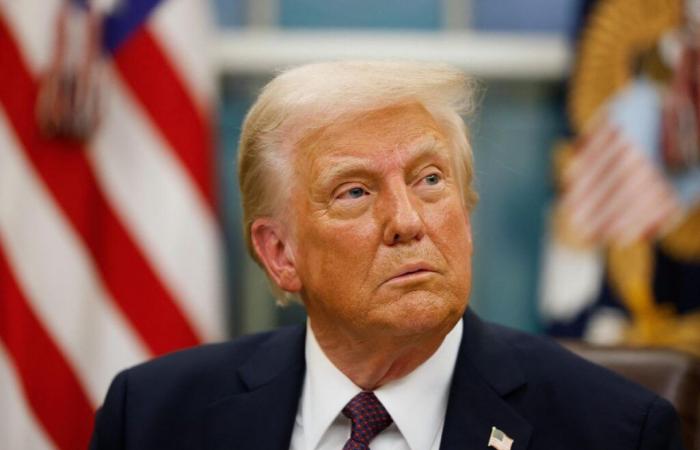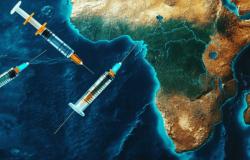Global Challenge –
Trump’s withdrawal shakes the WHO
Trump has decided to withdraw the USA from the WHO. This decision impacts the organization’s funding and the fight for health on a global scale.
Posted today at 5:46 p.m.
Donald Trump announced that the United States would leave the World Health Organization.
Getty Images via AFP/Anna Moneymaker
Subscribe now and enjoy the audio playback feature.
BotTalk
Donald Trump does not like the World Health Organization and has once again promised to leave an institution that he accuses of “defrauding” the United States.
It is a financial shock for the WHO and complicates the fight for global health.
During his first term, the president accused the WHO of being at the mercy of China: this time, he judges that Beijing is not paying its dues compared to the United States, the largest contributor to the finances of the UN organization.
In addition, he appointed Robert F. Kennedy Jr., an anti-vaxxer and harsh critic of the WHO, to the Ministry of Health.
Constructive dialogue hoped for
She “regrets (this) decision” and still hopes for a constructive dialogue with the Trump administration. The WHO withdrawal will take effect one year after the official filing of the notification with the UN Secretary-General.
The United States “plays a crucial role in WHO’s mission to protect and improve the health of Americans and people around the world,” she said.
The organization, based in Geneva and with 193 other members, highlights the role played by Washington in the fight against polio and Ebola in the past, and more recently against the epidemics of mpox in the DRC and Marburg in Rwanda.
“The USA-WHO collaboration also plays a central role in the fight against HIV around the world,” notes the organization.
Transfer of funds suspended
The executive order, signed Monday by Donald Trump, stipulates that Washington will promptly suspend any transfer of funds to the WHO and recall any US government personnel or contractors working with it.
Once the US withdrawal is effective, the WHO will be deprived of a significant part of its funding, which comes from member states, non-governmental organizations and other donations.
In addition to mandatory contributions calculated on the basis of the wealth of each country, the organization also depends increasingly on “voluntary contributions” – sums assigned to a specific action – to meet ever-growing needs.
As the Covid-19 pandemic highlighted the need for more flexible funding to better respond to unforeseen events, member states agreed to increase their contributions to cover 50% of the organization’s budget by 2030.
16% of the WHO budget impacted
The WHO budget runs for two years and amounted to $7.89 billion in 2022-2023.
-The United States paid nearly 1.3 billion, or a little more than 16% of the total.
Next comes Germany ($856 million), followed by the Bill & Melinda Gates Foundation ($830 million), the Gavi Vaccine Alliance ($481 million481 million) and the European Commission ($468 million). dollars).
By comparison, China pays $157 million, a little less than the French contribution.
For Donald Trump – who applies this same logic to NATO – the United States is paying too much.
“Too early to say what the consequences are”
Although the new US president’s announcement is not a surprise, the WHO said Tuesday that it was “too early to say what the precise consequences are” for its finances and actions.
For Suerie Moon, co-director of the Center for Global Health at the Graduate Institute of International Studies in Geneva, “it would be logical (for the new administration, editor’s note) to see what it can obtain and then use the withdrawal as leverage” , she explained to AFP, before the announcement.
In 2020, there was no such thing, just the beginnings of withdrawal.
Review priorities
For Ms. Moon, an organization can survive with a 15% cut in its budget but by reviewing its priorities.
For her, the Europeans will not fill the void, but then who will pay?
Other unknowns are the long and difficult negotiations to provide the world with an agreement which should enable better action in the face of new pandemics.
The negotiators failed to complete it before the return of Donald Trump. However, his decree stipulates that Washington will stop negotiating during the withdrawal phase and that the agreement will have “no binding force” for the United States.
“An easy way out”
If Washington has never played a leading role in these negotiations, its withdrawal could nevertheless offer other countries “an easy exit”, according to Ms. Moon.
With the consequence that “the whole house of cards could collapse”, estimates Richard Gowan, of the International Crisis Group, in an interview with AFP.
“Latest news”
Want to stay on top of the news? “Tribune de Genève” offers you two meetings per day, directly in your email box. So you don’t miss anything that’s happening in your canton, in Switzerland or around the world.
Other newsletters
Log in
AFP
Did you find an error? Please report it to us.
1 comment






